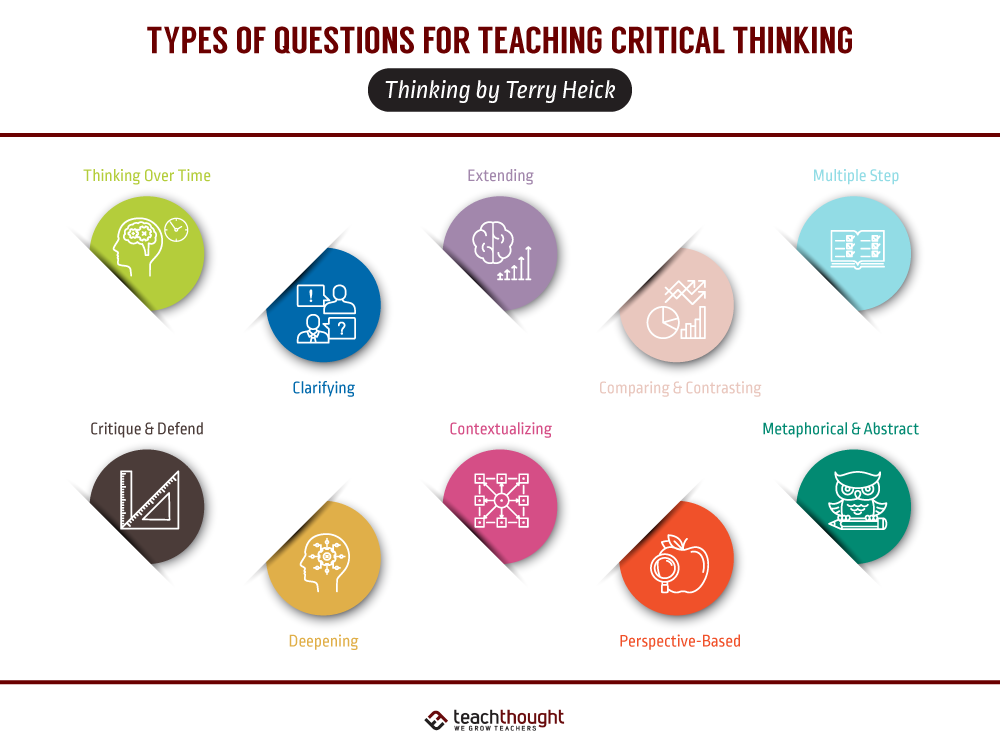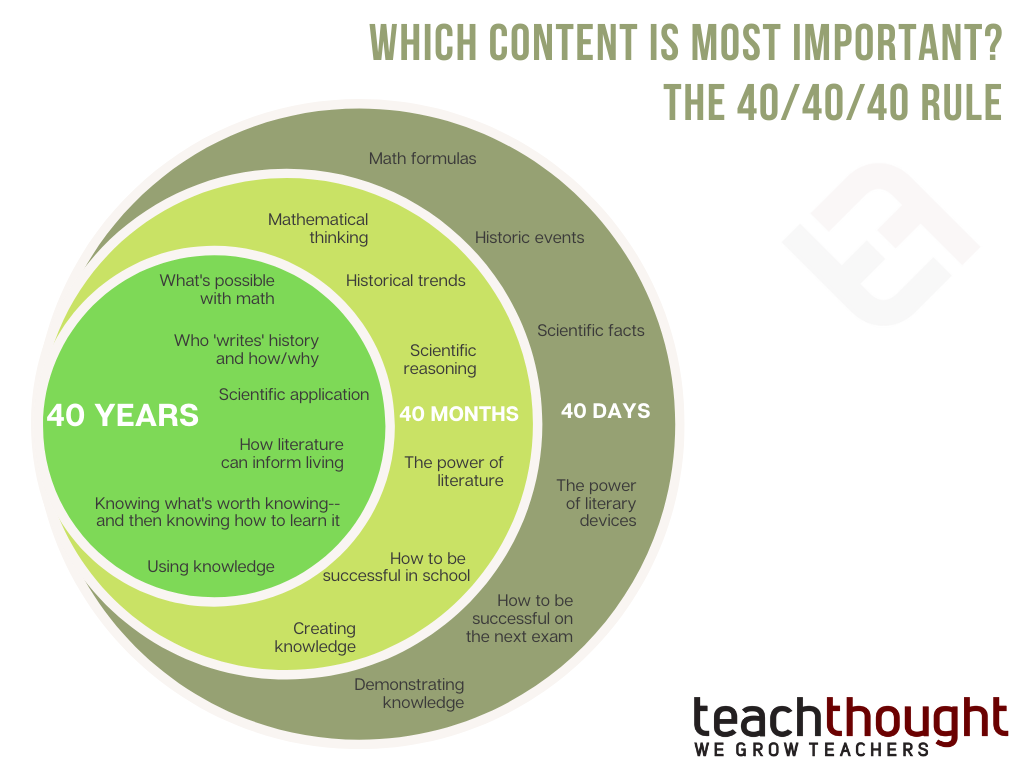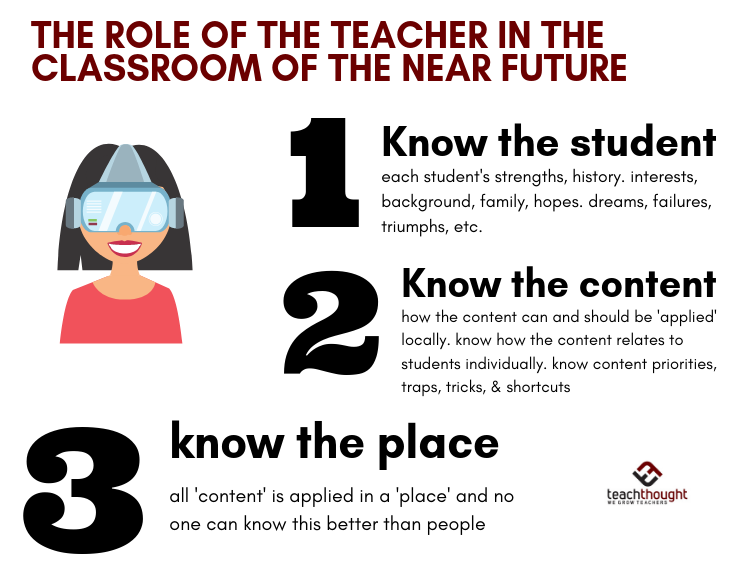20 Types Of Questions For Teaching Critical Thinking
What are some of the most common types of questions for teaching critical thinking? This led to many dozens of answers.

What are some of the most common types of questions for teaching critical thinking? This led to many dozens of answers.

Reflection is a fundamental tenet of learning; and therefore, a fundamental part of teaching. Here’s what it means to be a reflective teacher.

The 40/40/40 rule: What’s important that students understand for the next 40 days, for the next 40 months, for the next 40 years?

Tone As A Cause And Effect Of Learning by Terrell Heick In 20 Words That Can Affect How Students Think,, we said “Tone affects how students see themselves and their role in the learning process. In fact, a student’s own ongoing internal dialogue and thoughts about themselves and their self-identity as learners isn’t just a…

by TeachThought Staff We make lasting connections through play, but the role of play in learning is an idea that continues to meet resistance. Part of the reason could be tone. We like our learning serious, intentional, and academic. This is reflected through a parallel insistence on an outcomes-based learning system where learning objectives are…

“We’ve always done it this way” is one of the most dangerous phrases we can use—and this danger extends to education, as well.

When discussing equity, there are so many convenient phrases but there may be a larger view that we’re missing.
How To Keep The Learning Going by Terry Heick In 2014, sandbox video games have changed gaming more than a little. Players can now define their own terms for success, and the evolution of certain gamification elements makes this more than a fantasy in the minds of the players. There really are multiple measures of…

By deciding what stays & what goes in the near-future classroom, what’s worth understanding & what’s not, teachers have quite a bit of power.

Tone affects how students see themselves and their role in the learning process. The words you use can have a lasting impact.

The most important critical thinking skills include analysis, synthesis, interpretation, inferencing, and judgement.

Grading problems still surfaced, but with a system in place, it was easier to identify what went wrong and communicate why to students.